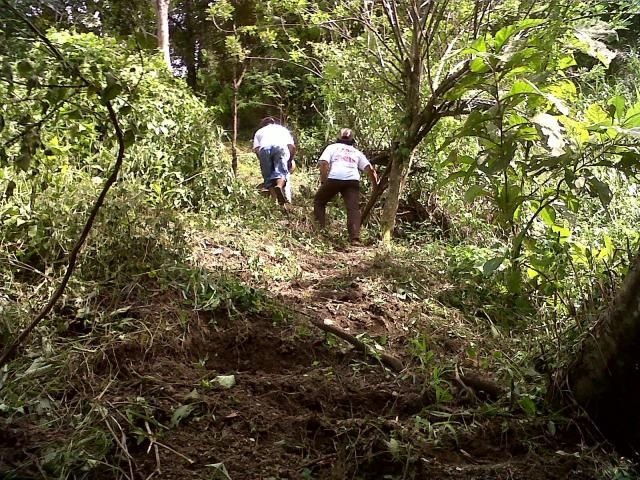Acquiring Absolution

A major criticism of many carbon offset programs is that they can be a gimmick – a way for the “polluters” to feel redeemed of their pollution by spending a few dollars to plant a tree or two someplace far away. There may be some truth to that critique, but that’s not why Episcopal Relief & Development is partnering with the Episcopal Church in the Philippines (ECP) on a unique approach to offset our carbon usage.
As we discussed our proposal for an offset program, ECP challenged me that if they were to accept our proposal, then we would need to change our behavior in New York. And we have. Episcopal Relief & Development has resolved to reduce or eliminate any travel that we can, and offset all travel that we cannot (particularly when we are obligated to be good stewards of resources and confirm that funds are spent according to donor intent).
Now, staff combine field visits to multiple programs and countries on one trip, although the longer duration means that we spend more time away from our families. (I remember a recent trip where I was away from my two-year old, Aanya, for over four weeks – a very long time at that age!) We also encourage booking direct flights to minimize emissions even if it means a costlier airfare. In-country, we engage with local public transport options that are more environmentally friendly (e.g., trains, buses) instead of available flights, even if they are quicker and more convenient. (I, and several of my colleagues, have spent countless hours and overnight trips on ferries, trains and buses). It’s a sacrifice I feel is also my Christian responsibility in safeguarding God’s creation.
Similar to other Episcopal Relief & Development projects addressing sound environmental protection and restoration activities worldwide, our carbon offset partnership with ECP engages with indigenous communities on specific forestry initiatives that promote permanence of the forests and involve native species of vegetation. And ECP has designed a fantastic program, with the help of experts at a local university, in which a community is rewarded with a “Certificate of Climate Change Adaptation” for planting a minimum of 2,000 trees. The certificate is issued only after local church verification of the eligibility criteria, including that the trees are planted on a mountainside in a landslide area and in sufficient numbers to control soil erosion. Each certificate represents the sequestration of 50 metric tons of carbon dioxide, and can be sold to Episcopal Relief & Development for an equal representation of our air travel carbon emissions.
Episcopal Church of the Philippines staff monitor one of the reforestation
program areas in the carbon offset project
This partnership with the Episcopal Church in the Philippines has been exciting. We believe it’s a prime example of a model that seeks to ensure the environmental sustainability in our community development programming, while striving to reduce the adverse impacts of all activities as much as possible – including (or especially) those of our New York office.
During this penitential period of Lent, I encourage all of us to reflect on our own stewardship of God’s creation. What steps might we each consider taking to reduce our impact on the planet?
———-
Nagulan Nesiah is a Program Officer with Episcopal Relief & Development.


